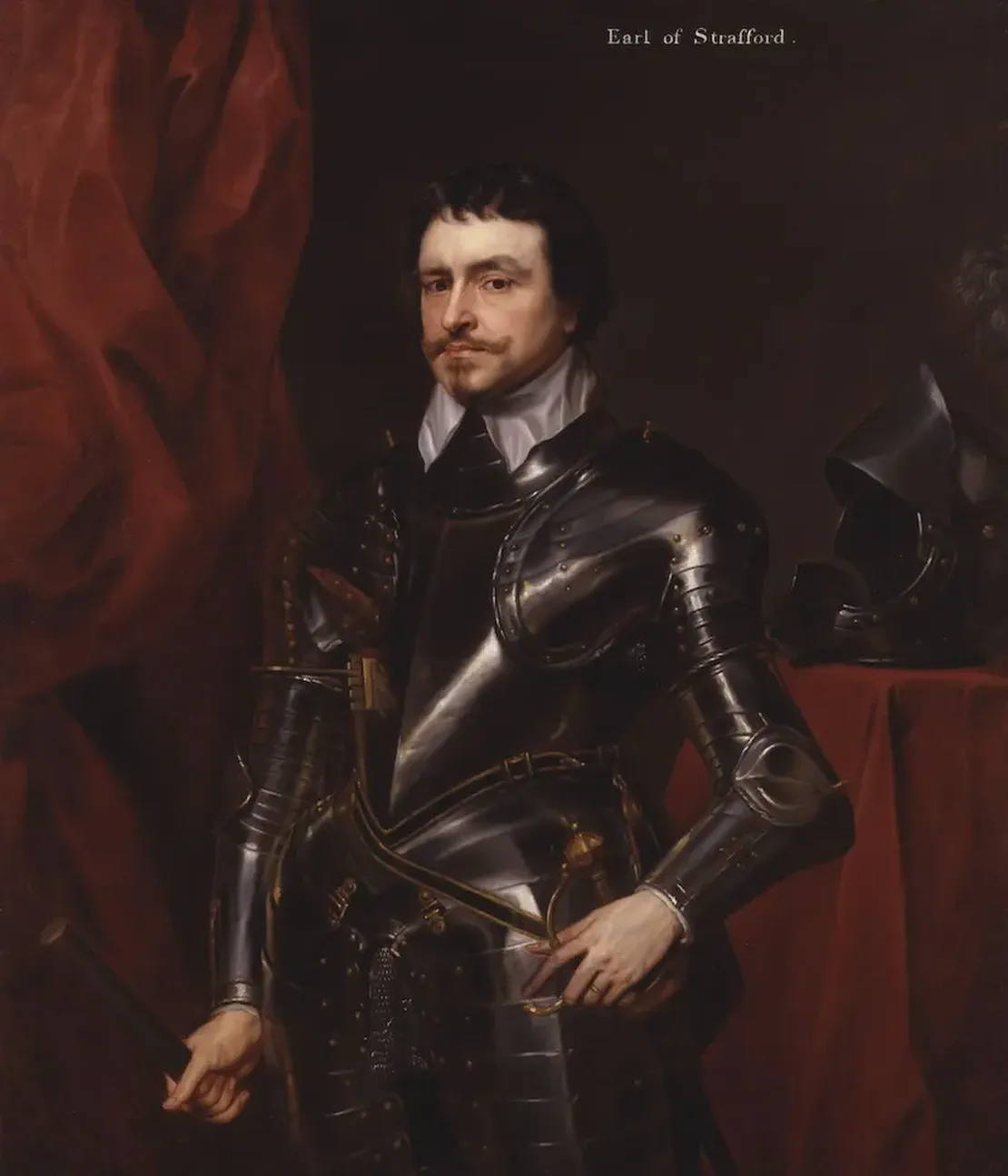On May 21, 1639 in Celtic History
Lord deputy thomas wentworth imposes the black oath of loyalty to charles i on all ulster scots over the age of 16

In 1639, Thomas Wentworth, 1st Earl of Strafford, who was the Lord Deputy of Ireland under King Charles I, imposed what became known as the “Black Oath” on the Ulster Scots population in Ireland. This controversial measure was part of Wentworth’s efforts to ensure loyalty to the Crown during a period of increasing tension between Charles I and his subjects, particularly in Scotland.
Background
-
Thomas Wentworth and Charles I: Wentworth was one of King Charles I’s most trusted advisors, known for his authoritarian and centralizing policies. As Lord Deputy of Ireland, he sought to strengthen royal authority in Ireland, often through harsh and coercive measures. This period was marked by growing unrest and conflict, particularly with the Scottish Presbyterians, who opposed Charles I’s attempts to impose Anglican practices on the Church of Scotland.
-
The Covenanters: In 1638, many Scots signed the National Covenant, pledging to resist the religious reforms imposed by Charles I and to defend their Presbyterian faith. This movement, known as the Covenanters, spread to the Ulster Scots, who shared strong religious and cultural ties with Scotland. The loyalty of the Ulster Scots to the Crown became suspect in the eyes of Wentworth and the royal administration.
The Black Oath
-
The Oath’s Content: The “Black Oath” was essentially a pledge of loyalty to King Charles I and a renunciation of the National Covenant. It required those who took it to swear allegiance to the king and to oppose any attempts to alter the established church or undermine royal authority. The oath was called “black” by its opponents due to the coercive manner in which it was imposed and the dark consequences for those who refused to take it.
-
Imposition in Ulster: Wentworth mandated that all Ulster Scots over the age of 16 were required to take the oath. This was part of his broader strategy to suppress dissent and ensure that the Scottish settlers in Ulster remained loyal to the Crown. The imposition of the oath was met with widespread resistance, as many of the Ulster Scots were sympathetic to the Covenanters and deeply opposed to the religious policies of Charles I.
-
Consequences of Refusal: Those who refused to take the Black Oath faced severe penalties, including fines, imprisonment, and even the loss of their property. The enforcement of the oath created significant unrest and contributed to the growing alienation of the Ulster Scots from the royal government.
Impact and Legacy
-
Heightening Tensions: The imposition of the Black Oath exacerbated the already tense relationship between the Ulster Scots and the Crown. It deepened the resentment against Charles I’s policies and contributed to the broader sense of grievance that would later fuel the Irish Rebellion of 1641 and the Wars of the Three Kingdoms, which included the English Civil War.
-
Strafford’s Downfall: Thomas Wentworth, known as the Earl of Strafford, became increasingly unpopular due to his harsh methods in Ireland and England. His imposition of the Black Oath, among other actions, contributed to the perception of him as a tyrant. In 1641, Wentworth was arrested, impeached by the English Parliament, and eventually executed, largely due to his role in escalating tensions between the monarchy and its subjects.
-
Long-term Effects: The Black Oath and the policies of Wentworth left a lasting impact on the relationship between the Ulster Scots and the English Crown. The deep mistrust and resentment sown by these actions influenced the political and religious dynamics in Ireland for years to come, contributing to the complex history of conflict and division in the region.
The imposition of the Black Oath by Thomas Wentworth in 1639 is a significant episode in the history of Ireland and the British Isles, reflecting the broader struggles over authority, religion, and loyalty that characterized the tumultuous reign of Charles I.
Related Content

Shane Patrick Lysaght MacGowan, lead singer of the Pogues, died

St Machar Day, patron saint of Aberdeen

Oíche Shamhna - Cetlic New Year Eve (Halloween)

ALBAN ELFED (Welsh Bardic name for autumn equinox)

Feast day of St. James

John Davie Burgess, King of the Highland Pipers, died at age 71.